Support Your Local Shelter
34 million people live above our northern border, and none of them needs to worry about laws restricting their travel to Cuba. This fact, plus Canada's chilly northern locale, make for a healthy tourist business in Cuba. Sure, lot of Europeans jam busses dieseling all over Cuba, but a surprising number come from Canada.
Cuba's homeless street dogs are happy about this swarm of tourists, as they quickly learn there are handouts and wasted food to find near where tourists congregate. Hotels, restaurants (almost exclusively for tourist use), beaches, bars, tour bus rest stops, and shopping areas--all seem to have their share of canine hangers-on. The Cuban nationals are extremely careful not to waste food, after decades of struggle to have enough to eat.
It's no surprise we hear from lots of Canadians who've just come home from Cuba and have decided they'd like to save that cute little dog they saw begging near a bar at the beach. This presents a huge ethical dilemma. To get a stray dog out of Cuba is just as expensive--or more so-- as sending your purebred Portuguese Water Dog out of the country. And your purebred animal probably has a health certificate while the stray must undergo many tests and a thorough veterinary exam before flying out of the country.
But the first hurdle is to find the animal, and hopefully the traveler has some photos and a good description. To pick up the stray, you need to be sure it belongs to no one, because many Cuban family dogs still run loose.
For the medical matters the vets first need to clear up stray dog problems like fleas, ticks, worms, and mange. The vaccinations for rabies and other diseases need to be run. By law, some of these inoculations need to be done weeks before air travel. Also time passes as some tests are sent away to laboratories by the vets who draw the samples. All this can add up to a month or more in a foster home as vet work is sorted out.
Once a health certificate is obtained, you're still not home free. Some airlines quite correctly refuse to transport animals in the hot summer. A delay until cooler months could cost lots for foster care. And it pays to know what you're doing. Canadian airport authorities recently refused to accept a health certificate rendered in Spanish (not arranged by Aniplant). Without much frantic intervention, the next step would have been euthanasia by the airport vet.
Well, you get the picture; this is a time-intensive, expensive project to save one animal and, hopefully, to give it a better life in a loving family. Most travelers start out thinking it's really simple: Run it by a vet for a check-up, get a ticket and a travel cage, coordinate flight times and you're home free. Nothing could be farther from the truth.
When you think about the ethics of the situation, it really isn't a great thing to do. Yes, you save an animal and give him or her a better home, but you can do that at your local animal shelter as well. You have no choice of type if a stray dog touches the soft spot in your heart, but the local animal shelter could easily have up to 50% purebred animals looking for homes. Also at the shelter you can choose age, gender, color, disposition, etc. And the cost might be $50 instead of $300 or more for a Cuban intervention.
And the biggest ethical question of all is, have you done any more for the universe of homeless dogs by adopting from Cuba than by adopting from your local shelter? The answer, obviously, is "no."
But you have purchased the right to tell your friends the story of how you found and saved the dog.
Of course you can tell them the same story about a shelter dog for a lot less time, worry, and expense.
Les Inglis
Saturday, August 13, 2011
Subscribe to:
Post Comments (Atom)













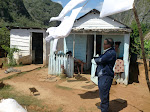




























































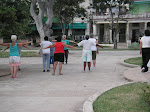

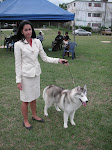


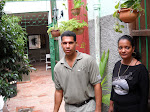





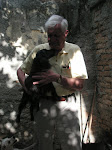



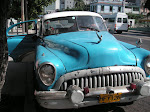

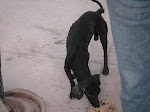


No comments:
Post a Comment